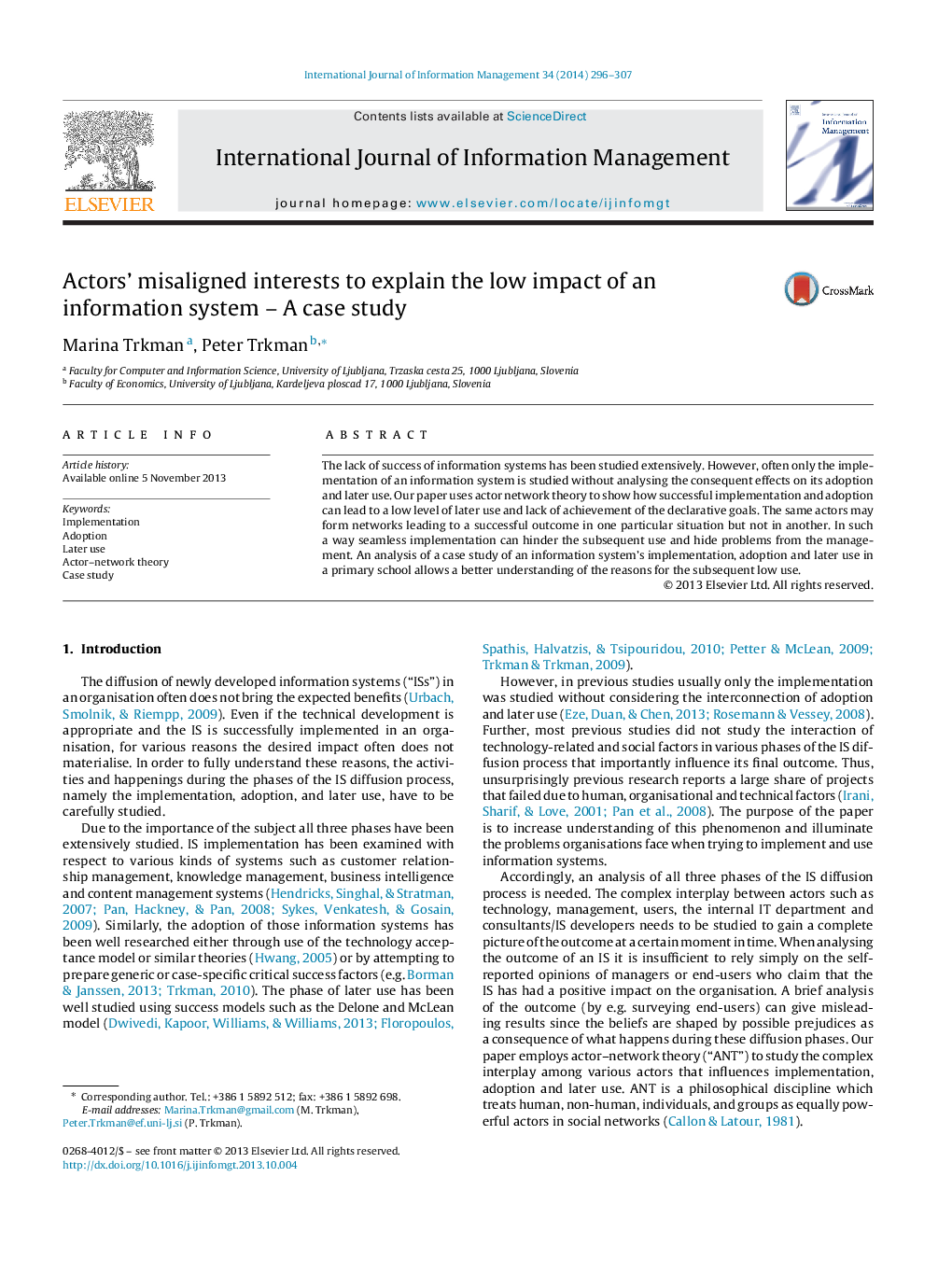| Article ID | Journal | Published Year | Pages | File Type |
|---|---|---|---|---|
| 7429141 | International Journal of Information Management | 2014 | 12 Pages |
Abstract
The lack of success of information systems has been studied extensively. However, often only the implementation of an information system is studied without analysing the consequent effects on its adoption and later use. Our paper uses actor network theory to show how successful implementation and adoption can lead to a low level of later use and lack of achievement of the declarative goals. The same actors may form networks leading to a successful outcome in one particular situation but not in another. In such a way seamless implementation can hinder the subsequent use and hide problems from the management. An analysis of a case study of an information system's implementation, adoption and later use in a primary school allows a better understanding of the reasons for the subsequent low use.
Related Topics
Social Sciences and Humanities
Business, Management and Accounting
Management Information Systems
Authors
Marina Trkman, Peter Trkman,
